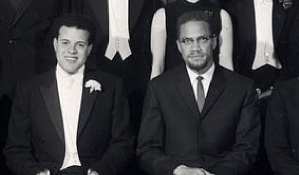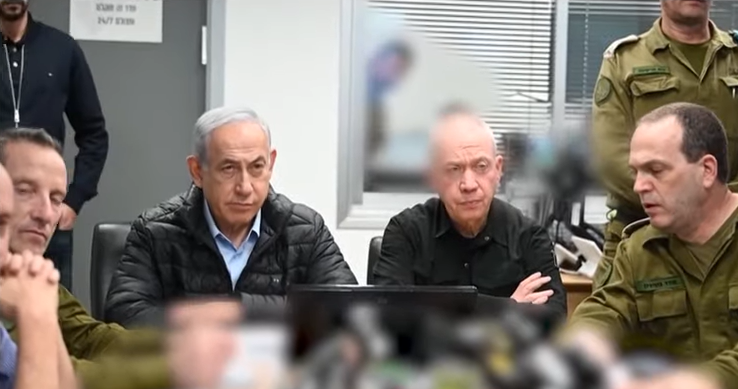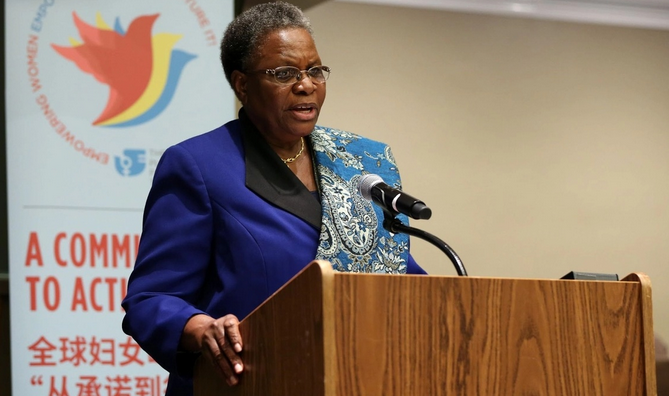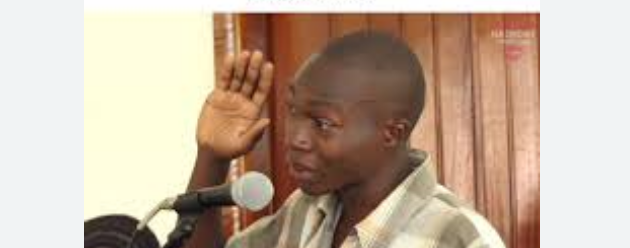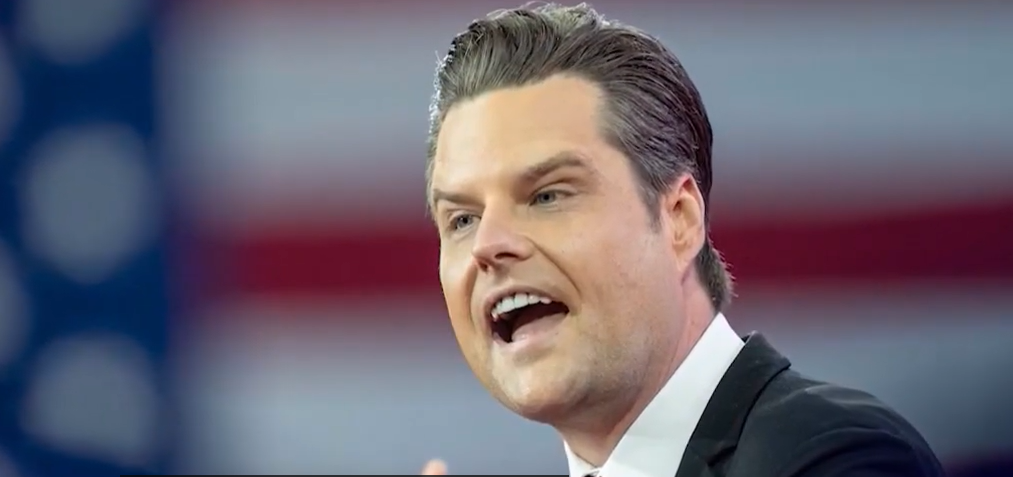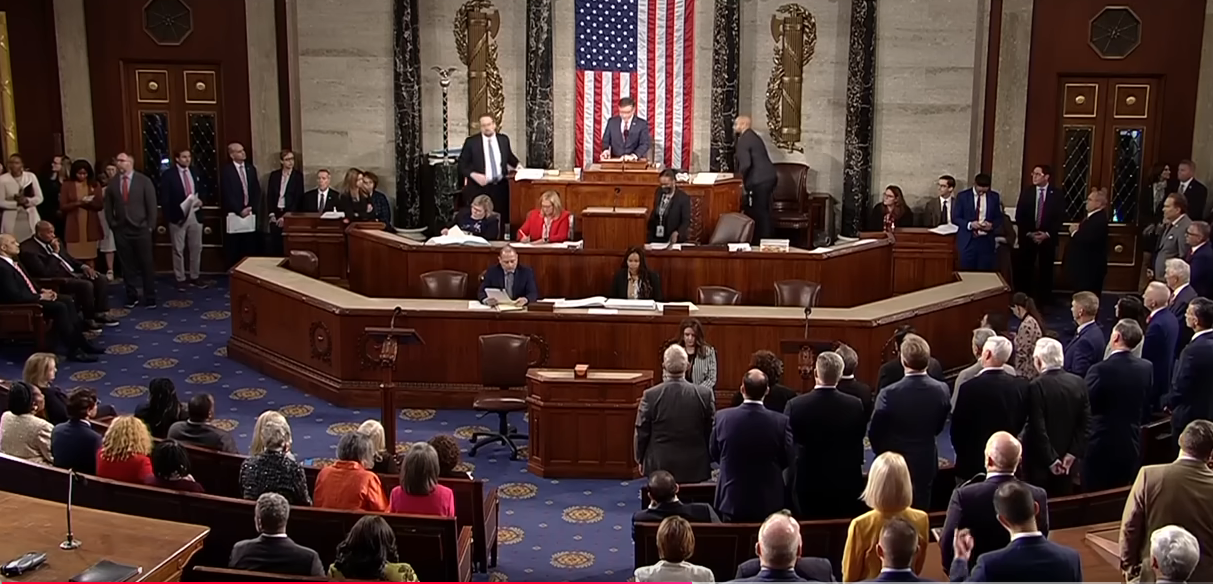Malcolm X shown with Oxford Union President Eric Abrahams who was a Jamaican student. Photo: Teresa Stokes-Flickr
[From The Archives]
Excerpted from Malcolm X’s presentation at the Oxford Union Debate on December 3, 1964.
Mr. Chairman, tonight is the first night that I’ve ever had an opportunity to be as near to conservatives as I am.
First I want to thank you for the invitation to come here to the Oxford Union; the speaker who preceded me is the best excuses that I know to prove our point concerning the necessity sometimes of extremism in defense of liberty–why it is no vice. And why moderation in the pursuit of justice is no virtue.
He’s right, X is not my real name. But if you study history you’ll find why no Black man in the Western hemisphere knows his real name. Some of his ancestors kidnapped our ancestors from Africa and took us into the Western hemisphere and sold us there and our names were stripped from us and so today we don’t know who we really are. I’m one
of those who admit it so I just put X up there to keep from wearing his name.
As far as this apartheid charge that he attributes to me is concerned evidently he has been misinformed. I don’t believe in any form of Apartheid. I don’t believe in any form of segregation. I don’t believe in any form of racialism; but at the same time, I don’t endorse a person as being right just because his skin is White. And oftentimes, when you find people like this, I mean that type, when a man whom they’ve been taught is below them has the nerve or firmness to question some of their philosophy or some of their conclusions usually they put that label on them. A label that is only designed to project an image which the public will find distasteful.
I’m a Muslim; if there is something wrong with that then I stand condemned. My religion is Islam. I believe in Allah. I believe in Muhammad as the apostle of Allah. I believe in brotherhood of all men. But I don’t believe in brotherhood with anybody who is not ready to practice brotherhood with our people.
I just take time to make these few things clear because I find that one of the tricks of the West is to use or create images. They create images of a person who doesn’t go along with their views and they make certain that this image is distasteful and then anything that this person has to say from thereon end is rejected; and this is a policy that has been practiced pretty well pretty much by the West. Perhaps it would have been practiced by others had they been in power. But during recent centuries the West has been in power and they created the images and they used these images quite skillfully and quite successfully. That’s why today we need a little extremism in order to straighten a very nasty situation out; or a very extremely nasty situation out.
I think the only way one can really determine whether or not extremely in the defense of liberty is justified is not to approach it as an American or European or an African or an Asian, but as a human being. If we look at it as different types immediately we begin to think of it as extremism being good for one and bad for another; or bad for one and good for another. But if we look upon ourselves as human beings I doubt that anyone will deny that extremism in defense of liberty for any human being is a vice. Anytime anyone is enslaved or in any way deprived of his liberty, that person is a human being, as far as I’m concerned he’s justified to resort to whatever method is necessary to bring about his liberty again.
But most people usually think in terms of extremism as something that is relative; related to someone whom they know or something that they’ve heard of. I don’t think they look at extremism as something by itself; alone, they apply it something.
Many people who have been in positions of power in the past don’t realize that the centers of power are changing. When you’re in a position of power for a long time you get used to using your yardstick and you take it for granted that because you’ve forced your yardstick on others that everyone is still using the same yardstick. So that your definition of extremism usually applies to everyone but nowadays times are changing and the centers of power is changing. People in the past who weren’t in a position to have a yardstick are using their own yardsticks now. You use one and they use another. In the past when the oppressor had one stick, and they oppressed used that same stick; today the oppressed are sort of shaking the shackles and using yardsticks of their own; so when they say extremism they don’t mean what you do and when you say extremism you don’t mean what they do. There’s entirely two different meanings; and when this is understood I think you can better understand why those who are using methods of extremism are being driven to them.
A good example is the Congo. When the people who are in power want to create an image to justify something that is bad they use the press. They will use the press to use a humanitarian image for a devil, or a devil image for a humanitarian. They’ll take a person who is a victim of the crime and make it appear he is the criminal, and they’ll take the criminal and make it appear he’s the victim of the crime; and the Congo situation is one of the best examples that I can think right now to point this out.
The Congo situation is a nasty example of how a country because it is in power can take its press and make the world accept something that’s absolutely crazy. They take pilots that they say are American-trained and this automatically lends respectability to them. And then they will call them anti-Castro Cubans and that’s supposed to add to their
respectability — and they eiminate the fact that they are dropping bombs on villages where they have no defense whatsoever against such planes. Blowing to death Black women, Congolese women, Congolese children, Congolese babies — this is extremism. But it is never referred to as extremism because it is endorsed by the West, it’s financed by America and it is made respectable by America and that kind of extremism is never labeled as extremism; because it’s not extremism in the defense of liberty and if it is extremism in defense of liberty…..it’s in defense of liberty for the wrong type of people. I’m not advocating that kind of extremism; that’s cold blooded murder. But the press is used to make that cold-blooded murder appear as an act of humanitarianism.
They take it one step farther and get a man named Tshombe, who is a murderer; they refer to him as the premier or the Prime Minister of the Congo to lend respectability to him and he’s actually the murderer of the rightful Prime Minister of the Congo. I’m not for extremism in defense of that kind of liberty or that kind of activity. They take this man who is a murderer; the world recognizes him as a murderer.
But they make him the Prime Minister. He becomes a paid murderer. A paid killer who is propped up by American dollars and to show the degree to which he is a paid killer the first thing he does is go to South Africa and hire more killers and bring them into the Congo. They give them the glorious name of mercernaries which means a hired killer, not someone that’s killing for some kind of patriotism or some kind of idea but a man who is a paid killer, a hired killer. And one of the leaders is right from this country here and he’s glorified as a soldier of fortune when he’s shooting down little Black women and little Black babies and Black children. I’m not for that kind of extremism. I’m for the kind of extremism that those who are being destroyed by those bombs, and destroyed by those hired killers are able to put forth; they will risk their lives at any cost. They will sacrifice their lives at any cost against that kind of criminal actvitity.
I’m for the kind if extremism that the freedom fighters in the Stanleyville regime are able to dispense against these hired killers who are actually using some of my tax dollars that I have to pay in the United States to finance that operation over there.
And we must point out that one of those that are very much involved as accessories to the crime is the press. Not so much your press, but the American press which has tricked your press into repeating what they have been saying.
I’m reading in one of the English papers this morning, I think it’s a paper called The Express–and it gave a very clear account of the type of criminal activity that have been carried on by the mercenaries that are being paid by the United States tax dollars. It shows where they were killing Congolese whether they were from the Central government
or the Stanleyville government; it didn’t make any difference to them, they just killed them.
And they had a picture of those that had to wear a white bandage around their head and any Congolese that they saw without that white bandage they killed him; and this is clearly pointed out.
Editor’s Note: See you at the Maysles Cinema for screening of “This Is Congo” and lectures commemorating Patrice Lumumba.
